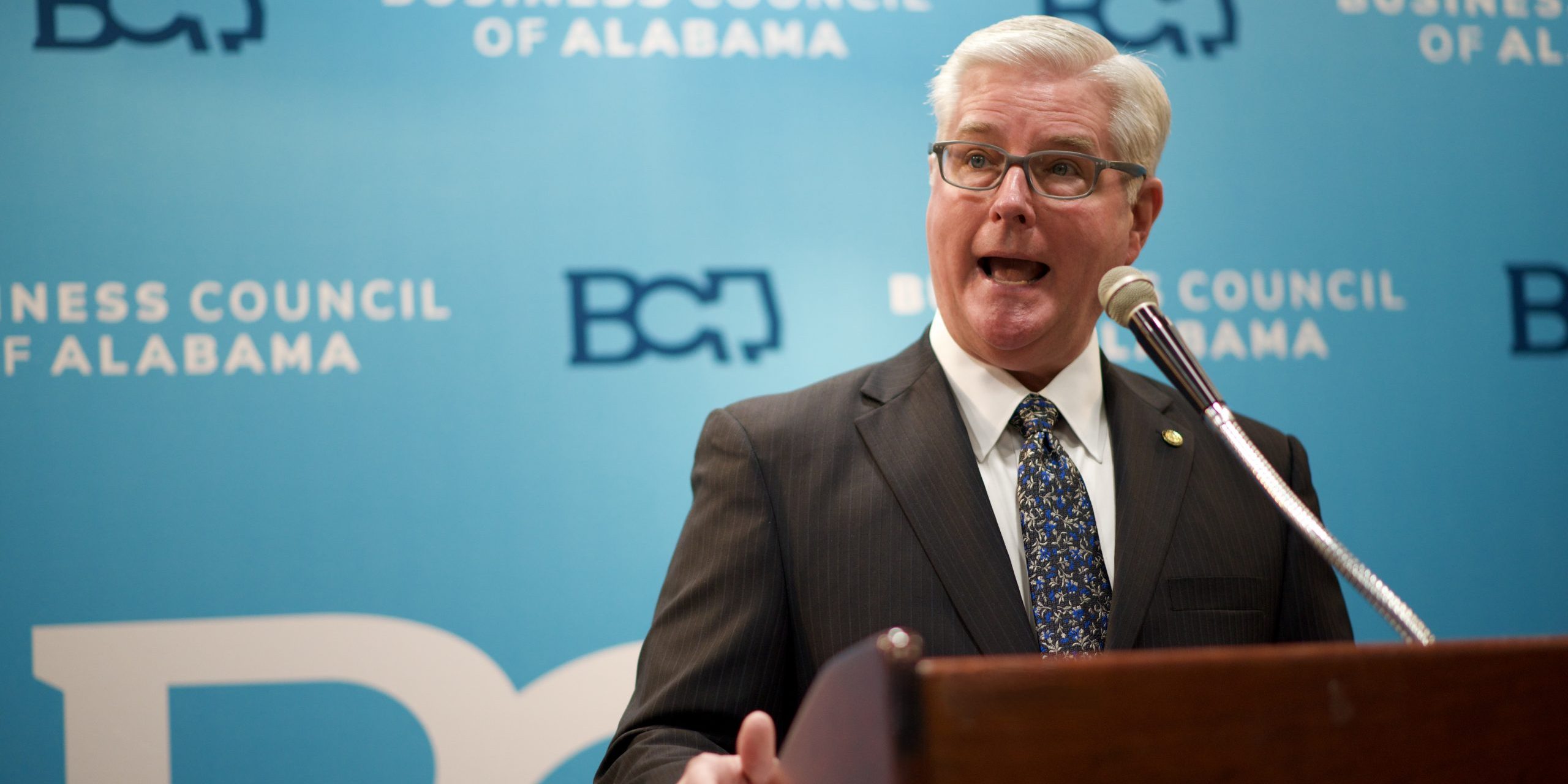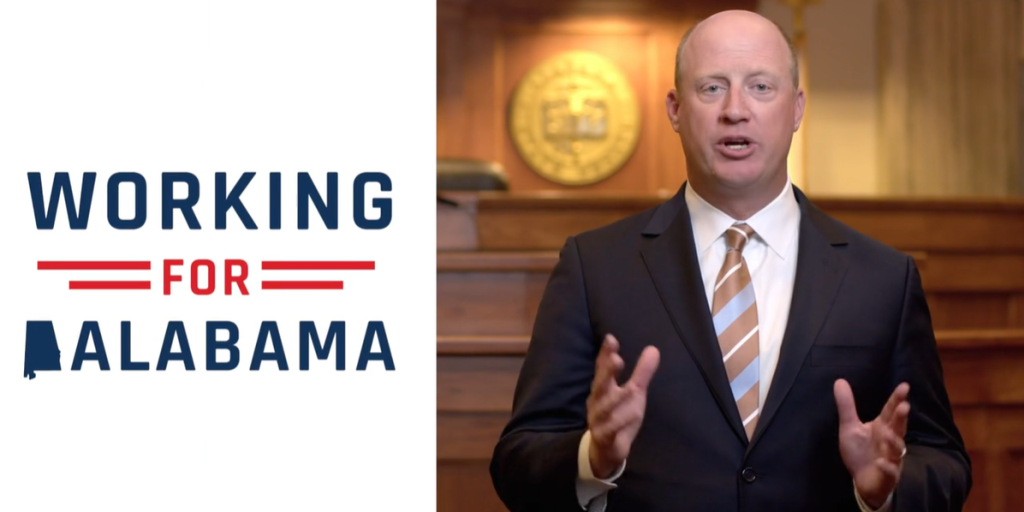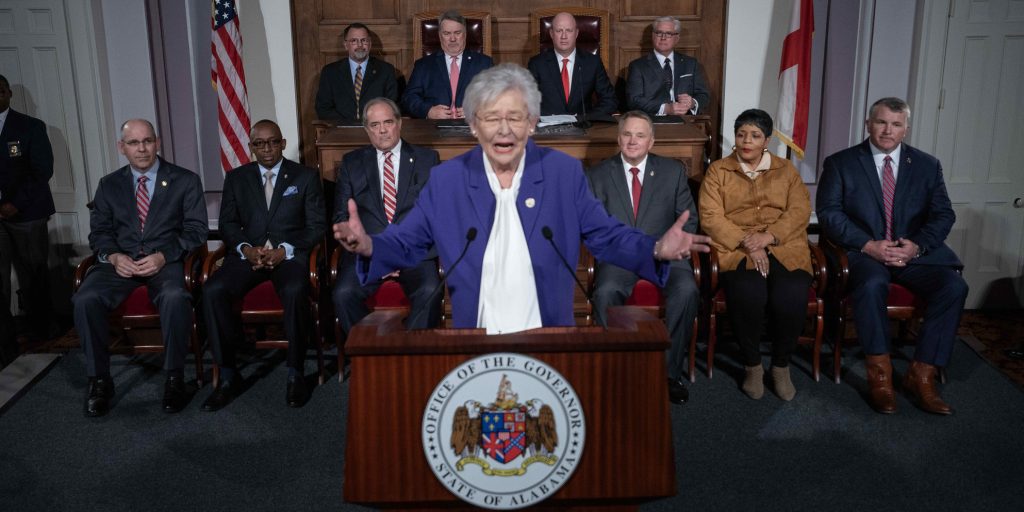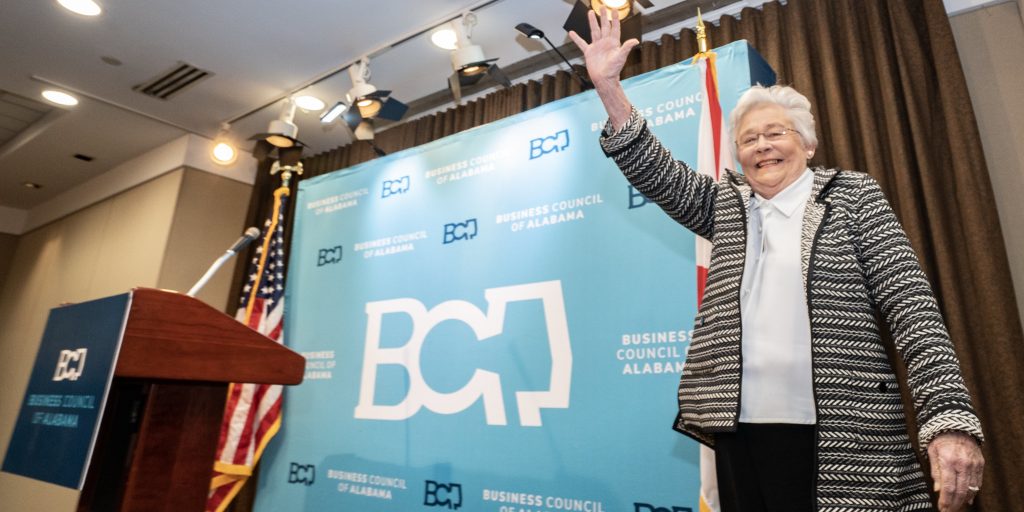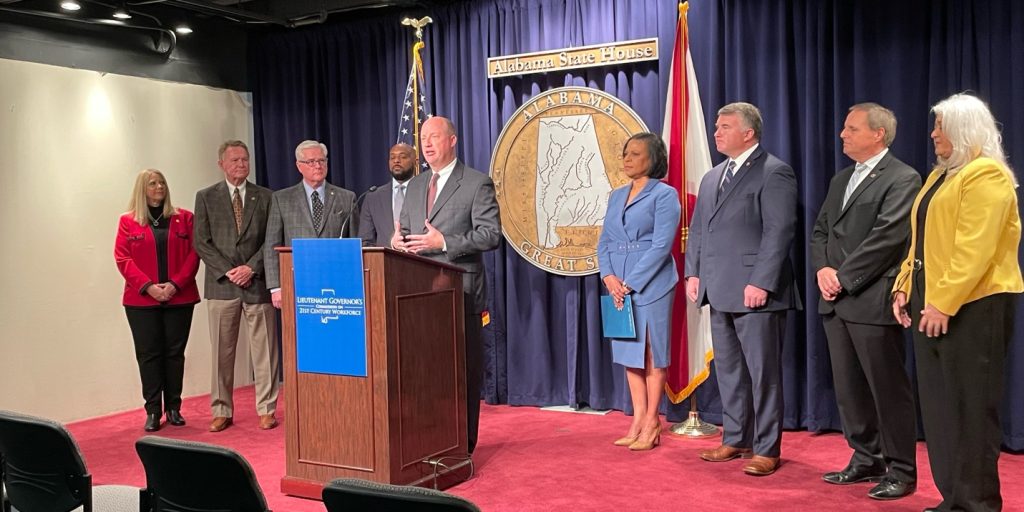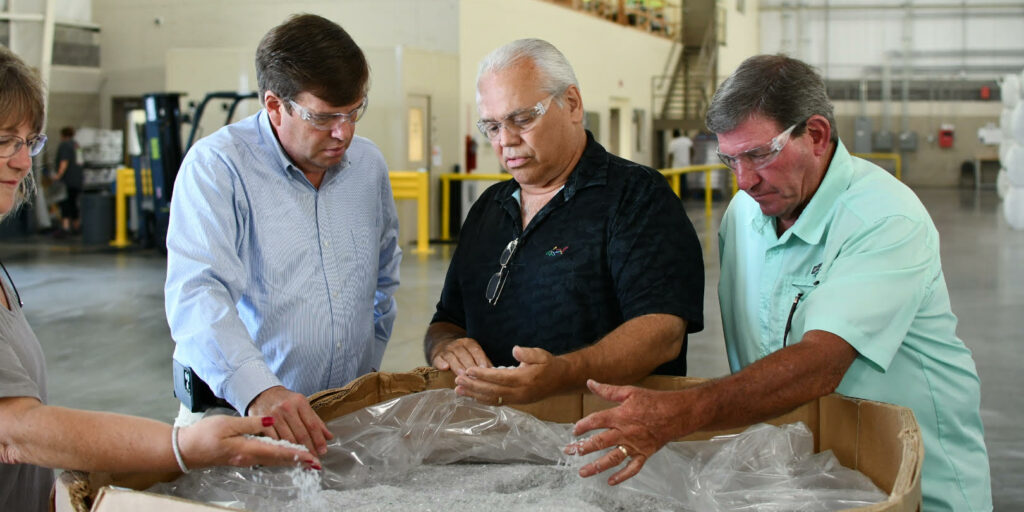President Pro Tem of the Alabama Senate Greg Reed (R-Jasper) addressed a group of business leaders on Tuesday morning to share challenges, accomplishments and opportunities facing state lawmakers now in week three of the 2024 legislative session.
He commended colleagues for their approach so far in tackling key legislative priorities such as the Senate-led effort to safeguard elections, enhance accountability for state boards, and expand transparency into the classroom on behalf of parents.
Sen. Reed turned to the topic of Alabama’s economy, boosted by last year’s comprehensive effort, yet still challenged by lackluster workforce participation across the state. Reed said when lawmakers return in early April, they will be “focused keenly” on addressing workforce challenges.
Reed opened his workforce remarks by echoing concerns over Alabama’s 44th ranking in workforce participation.
“There’s been a ton of work related to workforce. The Lieutenant Governor has done an extraordinary job in working with the task force, the Speaker had some work done in his chamber related to that, the Governor’s had some effort moving forward. And what I’m trying to add to the mix here, is to shepherd these important packages through the legislative process,” Reed said.
RELATED: Ainsworth envisions Alabama as ‘workforce engine of the Southeast’
Based in large measure on recommendations from the Lt. Governor’s 21st Century Workforce Commission, Reed described a government-wide strategy featuring a concerted effort to align workforce development with the urgent needs of key industries by fostering a closer relationship between the state’s educational institutions and the sectors to which they are producing qualified workers.
That begins with a cabinet-level official tasked with overseeing and streamlining state workforce efforts across the board, Reed said.
“We got great things going on in Huntsville, great things going Mobile, great things going on in Jasper, great things going on in Dothan – but we don’t have as much coordination and collaboration of all these great efforts,” Reed said. “We need to make sure it’s keenly focused to where our efforts are all going in the right direction and that’s something you’re going to hear more about as we move forward.”
A top priority of the comprehensive workforce effort will also be to develop a strategic plan that will give leaders, both in business and in government, common terms to define the issues facing the state’s workforce. With only 38 available workers for every 100 open jobs in Alabama, Reed said “benchmarking” will be necessary.
Another element will include workforce diploma opportunities to expand career pathways for high school students.
RELATED: Alabama’s strategy for workforce competitiveness proposed in ‘transformative’ new plan
“A workforce diploma – some idea for career tech in high school – that kids that want to stay focused on those job opportunities that we need so desperately in our communities, in our economy, and can focus on what’s going to be a graduation path that will allow them to have a diploma, that’s going to give them what they need to be able to go quickly into the workforce and be able to make a good income,” Reed said.
Several key products of legislation in years past have enabled state leaders to now focus their efforts on workforce challenges. Innovate Alabama, which Reed has remained closely involved with from initial concept to the current powerhouse form it exists in today, will continue to attract high-tech industries, startups and the careers of tomorrow.
“We’re ahead of Mississippi, Louisiana, Tennessee, Arkansas, and Kentucky in regards to state-defined innovators – so our state is moving in the right direction,” Reed said. “And my goodness, we’ve only gotten started with Innovate Alabama.”
Another underpinning to the future-forward efforts that will be taken on by the Alabama Legislature is the revolution in broadband expansion across the state.
“One of the things that Leader Scofield, at the time, was at the forefront of is a topic that is integral to what I’m describing related to workforce in that rural Alabama has to be engaged in this growth to this opportunity – and that is broadband,” Reed said.
“Alabama has spent $2 billion on broadband internet access, much of the rural areas in our state. We go from 47 nationwide broadband infrastructure to 24. Man, that’s what we want. That is great news.”
Grayson Everett is the state and political editor for Yellowhammer News. You can follow him on Twitter @Grayson270




